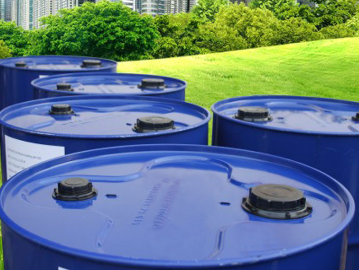
Amine curing agents are widely used in various industries as additives to improve the performance of products. These agents are commonly used in the curing of epoxy resins, polyurethanes, and various coatings. They are effective cross-linking agents that bond with the polymer chains and form a three-dimensional network, thus enhancing the mechanical, thermal, and chemical properties of the final product. In this article, we will discuss the key ways in which amine curing agents improve product performance.
1. Increased mechanical strength: One of the primary benefits of using amine curing agents is that they significantly improve the mechanical strength of cured products. The reaction between the curing agent and the epoxy or polyurethane forms covalent cross-links, resulting in a more rigid and durable structure. This enhanced strength makes products more resistant to deformation, cracking, and wear, thereby increasing their lifespan and performance.
2. Improved chemical resistance: Products cured with amine curing agents exhibit improved chemical resistance due to the cross-linking reaction. The presence of the cross-linked network restricts the movement of molecular chains, making the product less prone to degradation or dissolution in various chemicals and solvents. This resistance to chemical attack allows the cured product to maintain its integrity, even in harsh environments, thus improving its performance and reliability.
3. Enhanced heat resistance: Amine curing agents are known for their ability to improve the heat resistance of cured products. The cross-linked structure formed during curing provides a barrier that hinders the flow of heat through the product. This enhanced heat resistance allows the product to withstand elevated temperatures without losing its mechanical properties or deforming. Consequently, products cured with amine curing agents can be used in applications that involve exposure to high temperatures, such as electronic encapsulation, automotive parts, and aerospace components.
4. Increased adhesion: Another significant advantage of using amine curing agents is their ability to enhance adhesion properties. Amine curing agents form strong chemical bonds with the surface of substrates, such as metals, ceramics, or plastics. This chemical bonding ensures excellent adhesion between the cured product and the substrate, resulting in improved bond strength and reduced risk of delamination or separation. Enhanced adhesion is particularly important in applications where the product experiences high stress or vibration, as it ensures the structural integrity of the assembly.
5. Faster curing and lower viscosity: Amine curing agents also contribute to the performance improvement of products by facilitating faster curing times and reducing the viscosity of the system. These curing agents typically have low molecular weights and are highly reactive, enabling them to react quickly with the polymer chains. This rapid curing process allows for shorter production times, increased productivity, and reduced energy costs. Additionally, amine curing agents can reduce the viscosity of the epoxy or polyurethane formulation, making it easier to handle, coat, or inject into molds, further enhancing the manufacturing process.
In conclusion, amine curing agents play a vital role in improving the performance of various products. By forming a three-dimensional cross-linked network, they enhance the mechanical strength, chemical resistance, heat resistance, adhesion, and curing properties of cured products. These improvements result in longer product lifespans, increased reliability, and enhanced productivity. As a result, amine curing agents continue to be widely used in industries such as aerospace, automotive, electronics, and coatings.